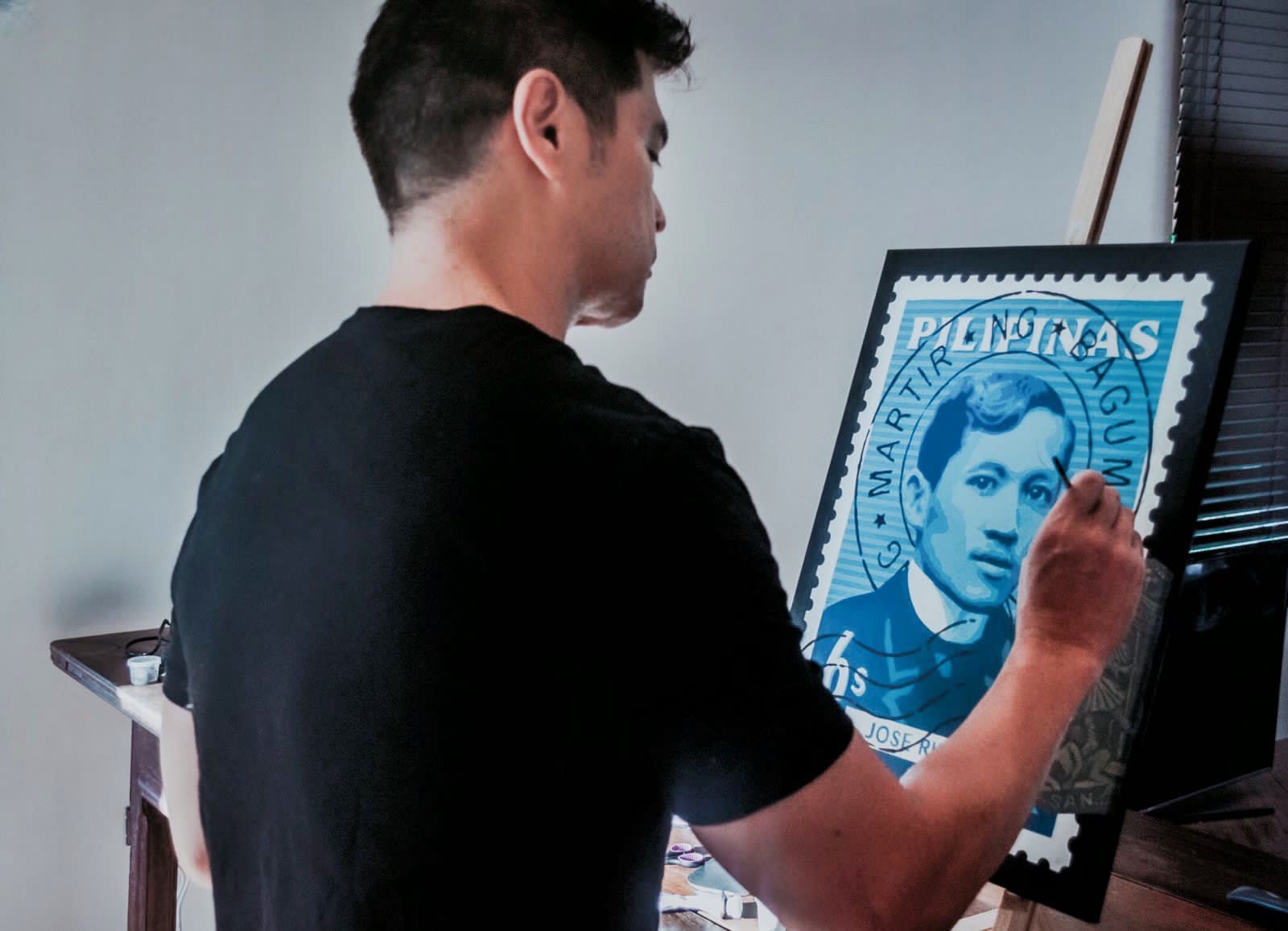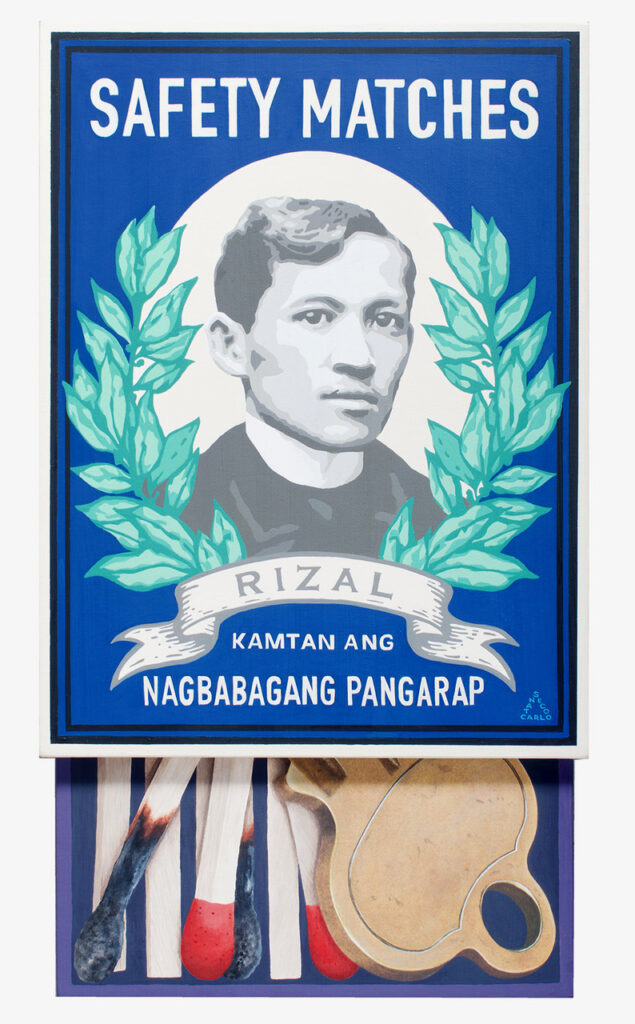In “Alias Elias,” the artist tries to show how Rizal, even almost 125 years after his death, remains relevant to Filipinos. He likens the narrative of the hero’s life as a link to the nation’s past and a connection to its present.
Artist and furniture designer Carlo S. Tanseco continues to explore the many facets of National Hero Jose Rizal and juxtaposes them with everyday life in his ongoing exhibit dubbed “Alias Elias” at the J Studio in Makati.
Carlo’s second solo show comes in the heels of his debut effort “Juxtaposed: Between Order and Complexity,” which portrayed figures from the art world and mythology in opposing situations and settings. This time, “Alia Elias,” which runs until December 30, Rizal Day, focuses solely on the man.
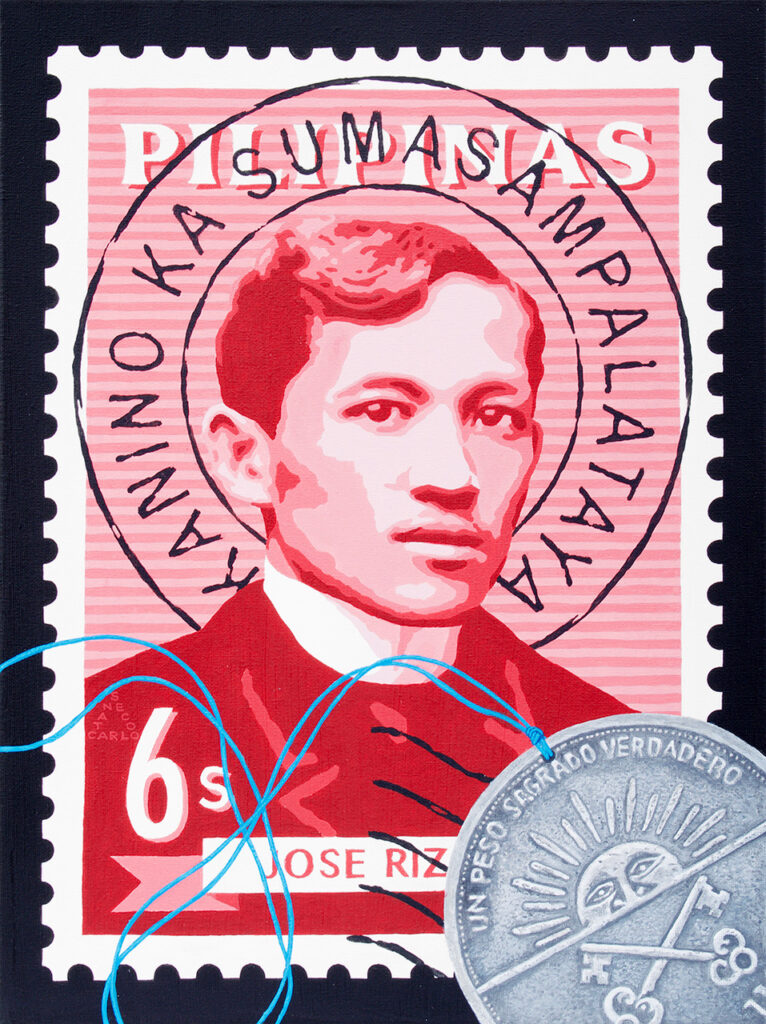
One of the first sub-series of the exhibit ALIAS ELIAS are the stamp paintings referring to Jose Rizal’s mystical side as the proclaimed deity of the nativist-religious group the Rizalistas. Here, the hero’s stamp portrait is juxtaposed against anting-anting (magical amulets); Rizal’s “halo”— actually a postmark—is written with different impressions on the complexities of Catholic-Filipino faith. Rizal Stampita – “Sampalataya” by Carlo S. Tanseco; Acrylic on Canvas, 20” x 15”
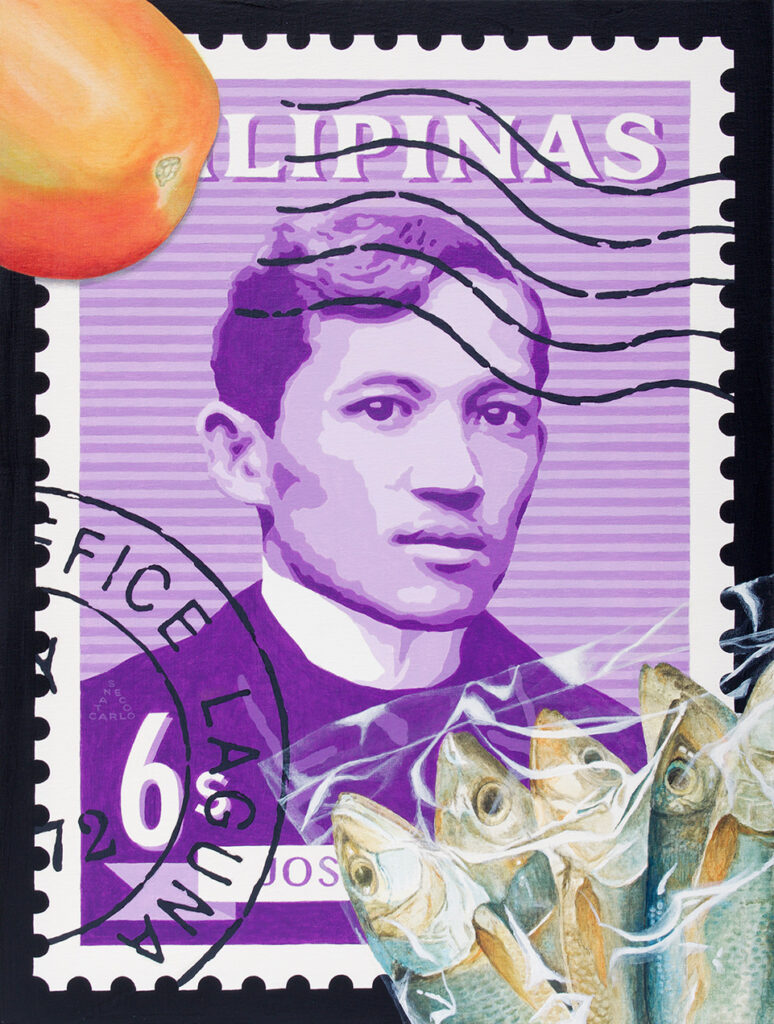
The tuyo in this painting alludes to the National Hero’s famous quote about love for the Filipino language: “Ang hindi marunong magmahal sa sariling wika, daig pa ang hayop at malansang isda.” Rizal Stamp – “Tuyo” by Carlo S. Tanseco, Acrylic on Canvas, 24” x 18”
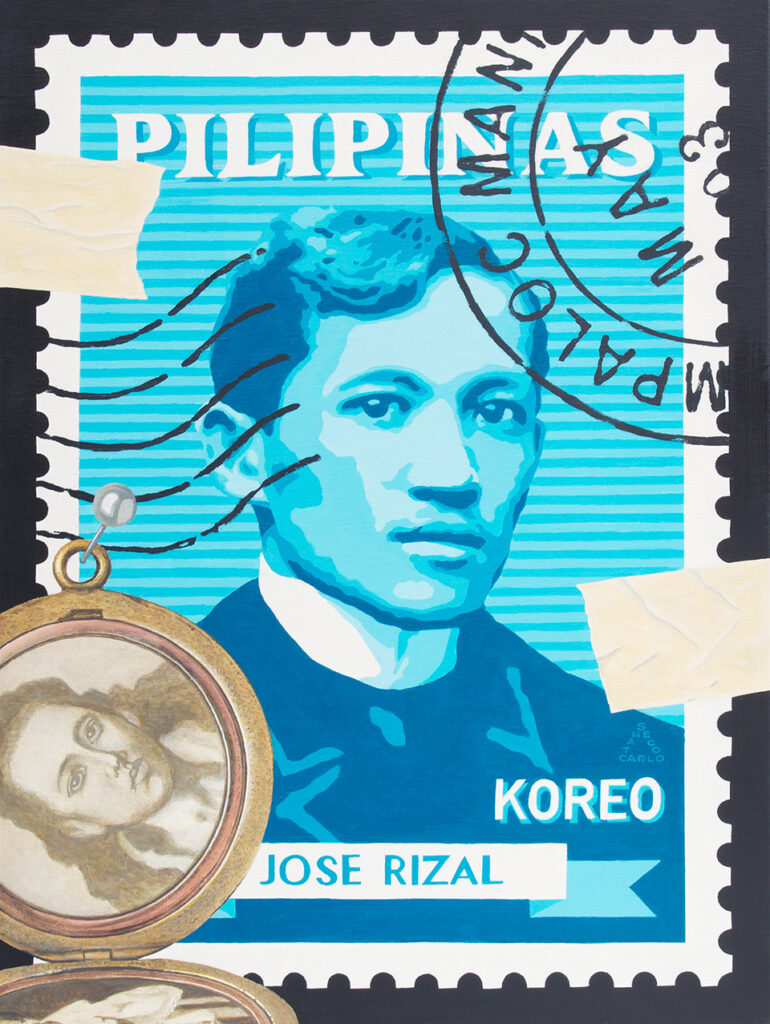
In one of the sub-series, this stamp painting refers to the hero’s lost love, Leonor Rivera. Rizal Stamp – “Locket” by Carlo S. Tanseco, Acrylic on Canvas, 24” x 18”

Tanseco’s Matchbox sub-series of paintings features matchboxes printed with Rizal’s visage and incendiary prose. The canvas is realistically rendered—with an attached canvas “box” of matchsticks—to resemble an actual matchbox. Rizal Matchbox – “Alab” by Carlo S. Tanseco, Acrylic on Canvas,
32” x 18” x 5”
Limited copies of the special edition of National Artist Nick Joaquin’s biography Rizal in Saga: A Life For Student Fans is also on sale during the exhibit. Tanseco’s Rizal painting “Solo Humano” graces the book’s.
Initially commissioned during Rizal’s death centenary in 1996, Joaquin’s book has been reissued by Milflores Publishing with an introduction and annotation by historian Ambeth R. Ocampo. Tanseco’s fine art prints of “Solo Humano” will also be sold at the show.
In “Alias Elias,” Tanseco delves into the many facets of Rizal as hero, lover, doctor, cult figure and icon. He digs up both the history and mythology, and presents these on canvas for the public to interpret based on their beliefs and views. The exhibit, which is composed of several hyper-realistic works of acrylic on canvas, is divided into three sub-series: the Stamps, the Matchboxes, and a Fencing Pair of the Eye Chart Series.
First in the sub-series are the Stamp paintings, with each one featuring a portrait of Rizal juxtaposed with popular Rizalian themes. These include the moth parable from his childhood, his pen, the locket of Leonor Rivera, a1972 one-peso coin—all of which can be interpreted as part of the story of Rizal or as metaphors of socio-political issues.
Tanseco’s smaller Stamp paintings focus on the mystical side of Rizal and his association with the Rizalistas, the folk-spiritual religious group who believe that Rizal is God. In these paintings, anting-anting (magical amulets) are placed on top of the Rizal stamps, and allude to Filipino Catholicism and its mix of animism, folklore and Christianity—all three existing side-by-side.
The third sub-series are the Matchbox paintings, which signify the need to fan the flames of change, and the incendiary text—in florid Tagalog prose—are written beneath Rizal’s portrait: Panatilihing ang siklab ng pag-asa. Maging mitsa ng pagbabago. Paigtingin ang alab ng puso.
“Alias Elias” shows how Rizal, even almost 125 years after his death, remains relevant to us. The narrative of the hero’s life is like a link to our past and a connection to our present. He still has the power to make us question our situation, and think of what we can do for our nation.
“Alias Elias” by Carlo S. Tanseco will run until December 30 at J Studio, La Fuerza, Gate 1 Compound, Makati. You may visit them by appointment: Tuesday to Saturday, 12nn – 7pm. Follow them on Instagram @artjstudio. Follow Carlo S. Tanseco on Instagram @carlotanseco_art

The new edition of National Artist Nick Joaquin’s 1996 Rizal Biography “Rizal in Saga: A Life for Student Fans”, reissued by Milflores Publishing, with Tanseco’s artwork “Solo Humano” used as cover art.

